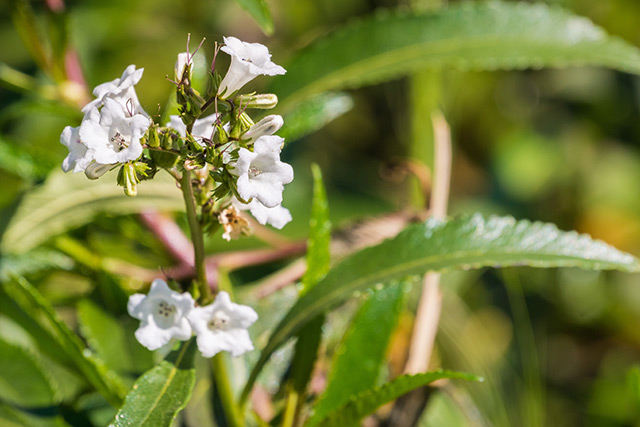Black cumin is great for allergic rhinitis – and many other conditions
09/20/2019 / By Melissa Smith

Black cumin (Nigella sativa), also known as black seed or fennel flower is a commonly grown plant in India, Arabia, and many parts of Europe. Historically, it is widely used as a spice, especially in Indian cuisine. Today, it is used as a medicinal herb for many ailments because of its properties of healing and improving health. It also contains high levels of antioxidants and strengthens the immune system.
One of the most common medicinal uses for black cumin is relieving allergic rhinitis, which is also called seasonal allergies because they are worse during the growing season. Also known as hay fever, this condition can cause some symptoms that affect the quality of life of a person, especially in spring. In some cases, allergies to pollen and mold, which are the most common causes of allergic rhinitis, can cause life-threatening symptoms. Here are some other symptoms of allergic rhinitis:
- Asthma-inducing inflammation of the airways
- Irritated, dry, or itchy throat, causing cough and hoarseness
- Itchy and irritated skin
- Runny, stuffy, and itchy nose
- Sneezing
- Wheezing and breathing difficulties
Recognizing the symptoms of hay fever will guide you on how to treat them. This will also help you determine when allergen is the problem and what treatments may work. Black cumin is often the first option since it has been used traditionally as an herbal solution.
What does research say?
Because black cumin is often used as an herbal treatment for allergic rhinitis, researchers conducted studies to test its efficacy. In one study, researchers from Ahvaz Jundishapur University of Medical Sciences in Ahvaz, Iran investigated the anti-inflammatory effects of black cumin and its effects on inflammatory factors in people with allergic rhinitis.

|
Discover how to prevent and reverse heart disease (and other cardio related events) with this free ebook: Written by popular Natural News writer Vicki Batt, this book includes everything you need to know about preventing heart disease, reversing hypertension, and nurturing your cardiac health without medication. Learn More. |
The researchers recruited 66 participants with allergic rhinitis and exposed them to either black cumin oil or placebo for 30 days. The participants were 47.19 years old on average. The researchers examined the participants’ characteristics of the disease, such as nasal congestion, runny nose, itchy nose, and sneezing attacks. An observer also completed the symptoms severity questionnaire from the beginning of the study until the end.
The researchers found that black cumin oil could reduce the presence of the nasal mucosal congestion, nasal itching, runny nose, sneezing attacks, turbinate hypertrophy, and mucosal pallor during the first two weeks of treatment. These anti-allergic effects were consistent until the end of the treatment, which could be attributed to the compounds in black cumin oil.
The researchers concluded that black cumin may be considered as a treatment for allergic rhinitis to avoid the adverse side effects of anti-allergic drugs. The team published their results in the American Journal of Otolaryngology. (Related: Black Seed Oil: Natural Protection In A Toxic World?)
Another study also showed that black cumin oil is an effective treatment for allergic rhinitis. In this study, which was published in the journal Anti-Inflammatory & Anti-Allergy Agents in Medicinal Chemistry, researchers from Tikrit University in Iraq examined the effects of topical black cumin oil treatment on allergic rhinitis.
For this study, the researchers recruited 68 participants with allergic rhinitis. Nineteen of them had mild symptoms, 28 had moderate symptoms, and 21 had severe symptoms. They also underwent a skin test to prove that their symptoms were allergic in nature. Each group was subdivided into treatment and control subgroups. Participants in the treatment group received black cumin oil, while those in the control group received ordinary food oil in the form of nasal drops for six weeks.
The results showed that all participants in the mild treatment group became free of symptoms; while in the moderate treatment group, 68.7 percent became symptom-free and 25 percent were improved. In the severe treatment group, 58.3 percent became symptom-free and 25 percent experienced improvements. Overall, 92.1 percent of the participants in the treatment group experienced improvements in symptoms or were free of symptoms. In addition, black cumin oil treatment improved their tolerability of allergen exposure.
Sources include:
Tagged Under: allergic rhinitis, allergies, alternative medicine, black cumin, black seed, disease treatments, fennel flower, food cures, food is medicine, functional food, hay fever, herbal medicine, Herbs, natural cures, natural medicine, nigella sativa, remedies, seasonal allergies



















